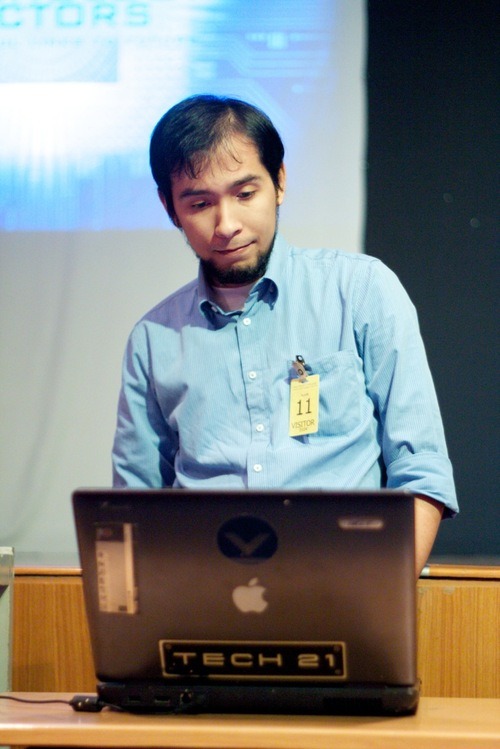I’ve always wanted to talk to students about the realities of the IT/Software Development industry, a talk that I would have loved to hear when I was a student. God gave me that chance through a friend of mine.
I gave a talk entitled “Career Paths: Story-based Career Planning” for a host of graduating students in Asia Pacific College.
Depending on the circumstances and unless I need to learn something specific – it’s ridiculous to seriously take career advice from someone who has yet to hit 30:

‘Who here has no idea what they’ll do after graduation?’
I asked.
Most of them laughed and raised their hands. That got them talking, that question got their attention.
I didn’t talk as someone with authority, but as someone who is also going through their own career path, someone who is also learning as they go.
I told my story, I told them to learn from it, because it’s the most helpful thing they could get from me unless they approach me personally and ask for specific advice.
They wanted a 45 minute talk, I gave a 25 minute one. One thing about giving talks is knowing the context. A bunch of students attending for requirements? In this context, short and sweet is better than long and tedious.
The talk ends up with a single point: Focusing on your 'Career Plan’ is noteworthy, but what’s more important is the character needed in going through your 'Career Path’.
Some snippets:
- Part of my talk was going back to what the word 'career’ really meant:
- Career originates from the latin word carrus (a wheeled vehicle)
- The definition of career transformed throughout time, now it’s being used to describe one’s profession.
- Career is also a verb: to move uncontrollably.
- I also didn’t know what to do after graduation.
- Plans are man-made based on ideal expectations, do not follow them to the letter, see them as a guidelines.
- Paths are made naturally based on personal character. Exceptional Careers (Yukihiro Matsumoto, Steve Wozniak, Bill Gates, Steve Jobs, Martin Odersky, Jack Dorsey, Elon Musk, etc.) seemed more of a 'path’, not a 'plan’.
- Character beats ability, but it doesn’t mean you’ll give up trying to be better at being more able. Work smart.
- Be concerned in doing the things you love doing, you’ll get highly paid to do these things in the future.
- Passion is great, on the other side we also need to be professional. Balance both. What if you don’t feel like doing what want to do anymore? Plan around the things you’re passionate about.
- Applying for a job and going into an interview is the norm after graduation, but it will be the 'exception’ after working for a couple of years. Work well, work well with others.
- Take related tasks that no one wants to do, your value instantly increases.
- Do things that are highly valuable for the company. Climb up the value chain, avoid being a 'cost center’, attach yourself to 'profit centers’.
- Avoid 'make work’: made-up work to make you look busy. Automate 'make work’, and you’ll instantly be essential to the organization.
- Age is not that important, if you’re working with right people.
- 'You can’t connect the dots looking forward; you can only connect them looking backwards. So you have to trust that the dots will somehow connect in your future. You have to trust in something — your gut, destiny, life, karma, whatever. This approach has never let me down, and it has made all the difference in my life.’ - Steve Jobs
- I placed my trust in God that everything would be alright.